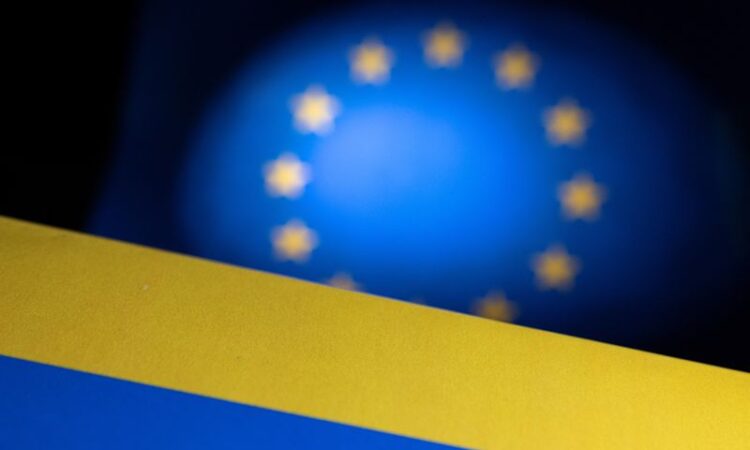
By Jan Strupczewski
BRUSSELS (Reuters) -European Union leaders will propose on Thursday holding an annual debate on a planned 50 billion euro ($54 billion) aid package for Ukraine in an effort to overcome opposition from Hungary, according to draft summit conclusions.
The EU aid is to help cover Ukraine’s needs for 2024-2027, with 33 billion euros in cheap loans and 17 billion in grants from the EU budget to give Kyiv stable financing as it fights off Russia’s invasion.
Hungary, which cultivates close ties with Moscow, has been pushing for an annual review that would give it a right to veto the disbursements every year. This goes against the idea of predictable funding and other EU countries reject it, but if the money is to come from the EU budget, it requires unanimity among the 27 EU countries, so Hungarian consent is necessary.
In the latest version of the draft summit conclusions, seen by Reuters, EU leaders say they could hold yearly debates on how the EU money is being spent by Ukraine, based on reports by the European Commission.
This would not give Hungary a right to veto the money, but it could air concerns.
“The European Council will hold a debate each year on the implementation of the facility with a view to providing guidance on the EU approach towards the situation stemming from Russia’s war of aggression against Ukraine,” the draft read.
It was not clear if Hungary’s Prime Minister Viktor Orban will agree to such a deal on Thursday.
HUNGARY STILL NOT ON BOARD
On Wednesday, Hungary’s ambassador told his EU counterparts at a preparatory meeting that Budapest still wanted the veto mechanism and other EU countries rejected it.
Diplomats also say Budapest wants not only an annual veto right, but also does not wish to contribute to higher servicing costs of joint EU borrowing for the recovery fund, arguing it had not received its money because of rule of law concerns.
Because the recovery funds for Hungary are still frozen and the scheme runs out in 2026, Budapest also wants the EU to extend the life of the programme by two years to 2028.
EU diplomats and officials argue neither an exemption from contributing to higher interest costs nor an extension of the recovery fund programme are legally possible.
Diplomats said use of the EU budget, called a “solution at 27” because all countries must sign off, was still the preferred outcome, but that the 26 EU countries other than Hungary could also find a solution outside the EU budget among themselves, if needed, to secure Ukraine funds.
“If a solution at 27 is impossible, then we will have to move at 26,” one EU diplomat said after a discussion of EU ambassadors on the issue.
Organising financing outside the EU budget, without the need for Hungarian approval, would be more expensive and complex and more politically challenging, but perfectly possible using the same method the EU employed to pay out 18 billion euros to Kyiv in 2023, diplomats said.
($1 = 0.9240 euros)
(Reporting by Jan Strupczewski, writing by Philip Blenkinsop; editing by Julia Payne and Andrew Cawthorne)






